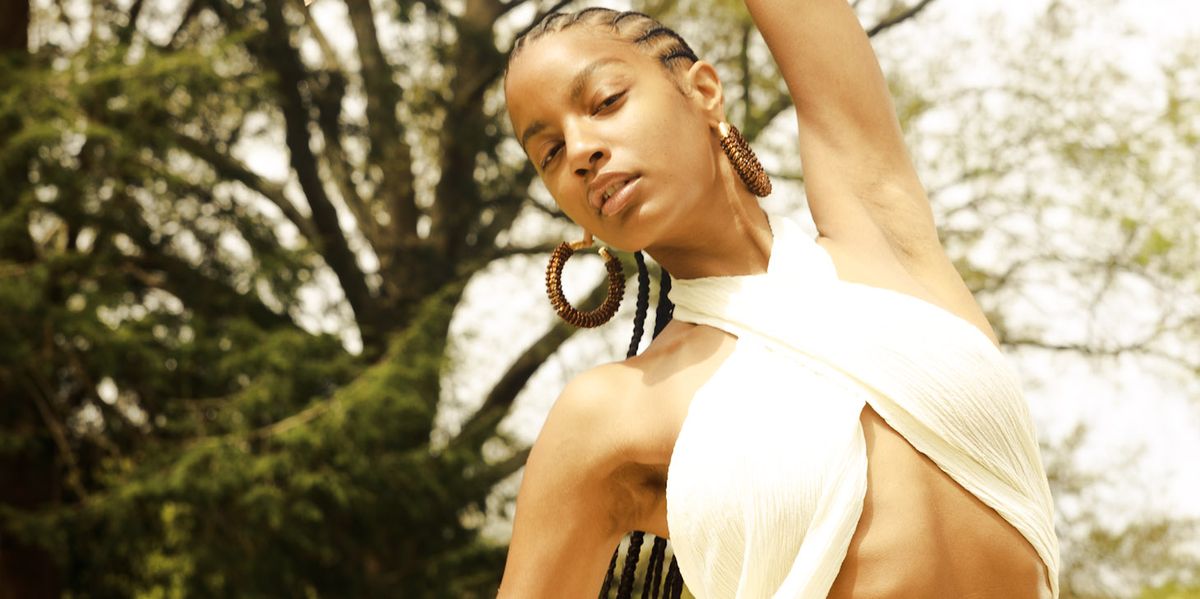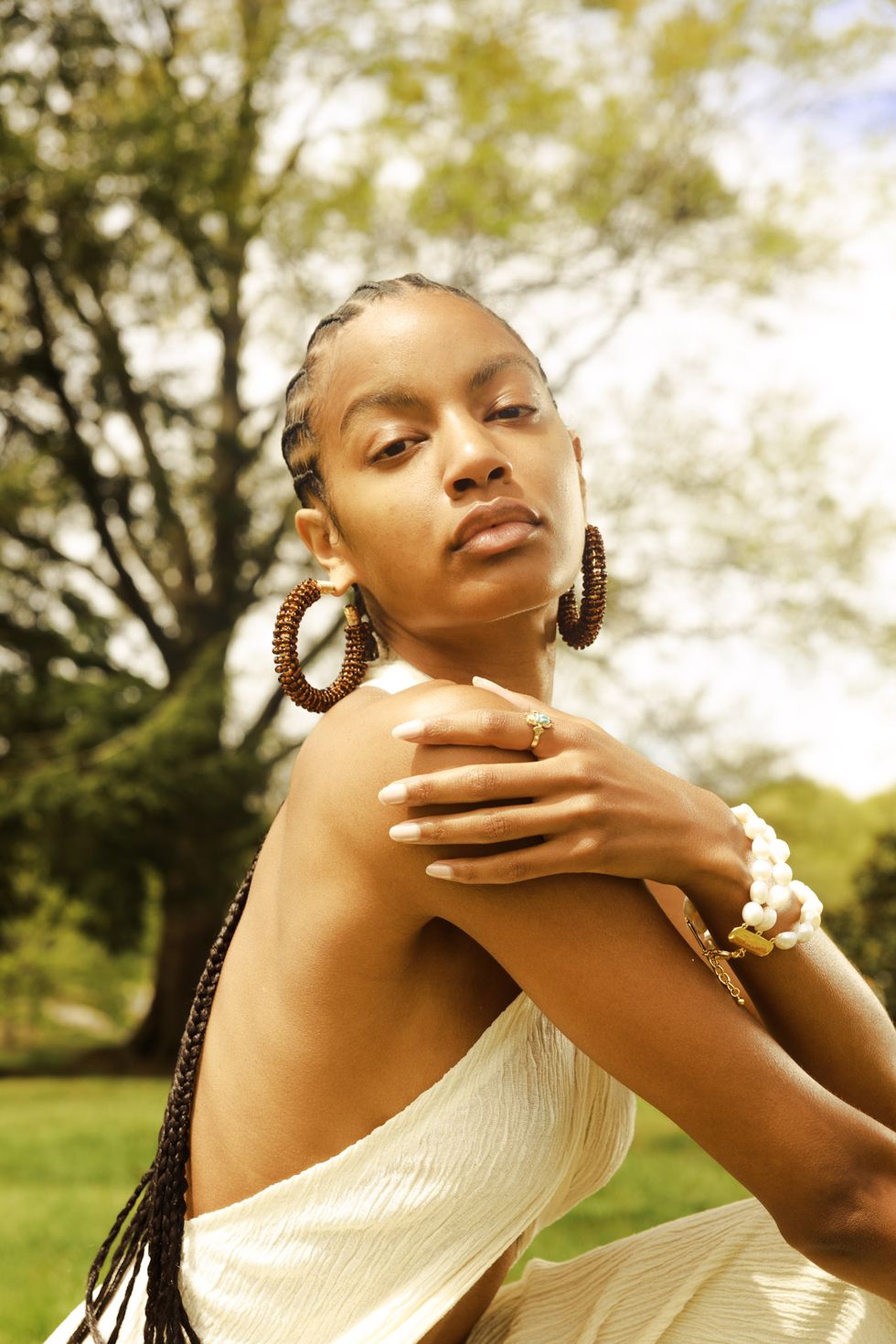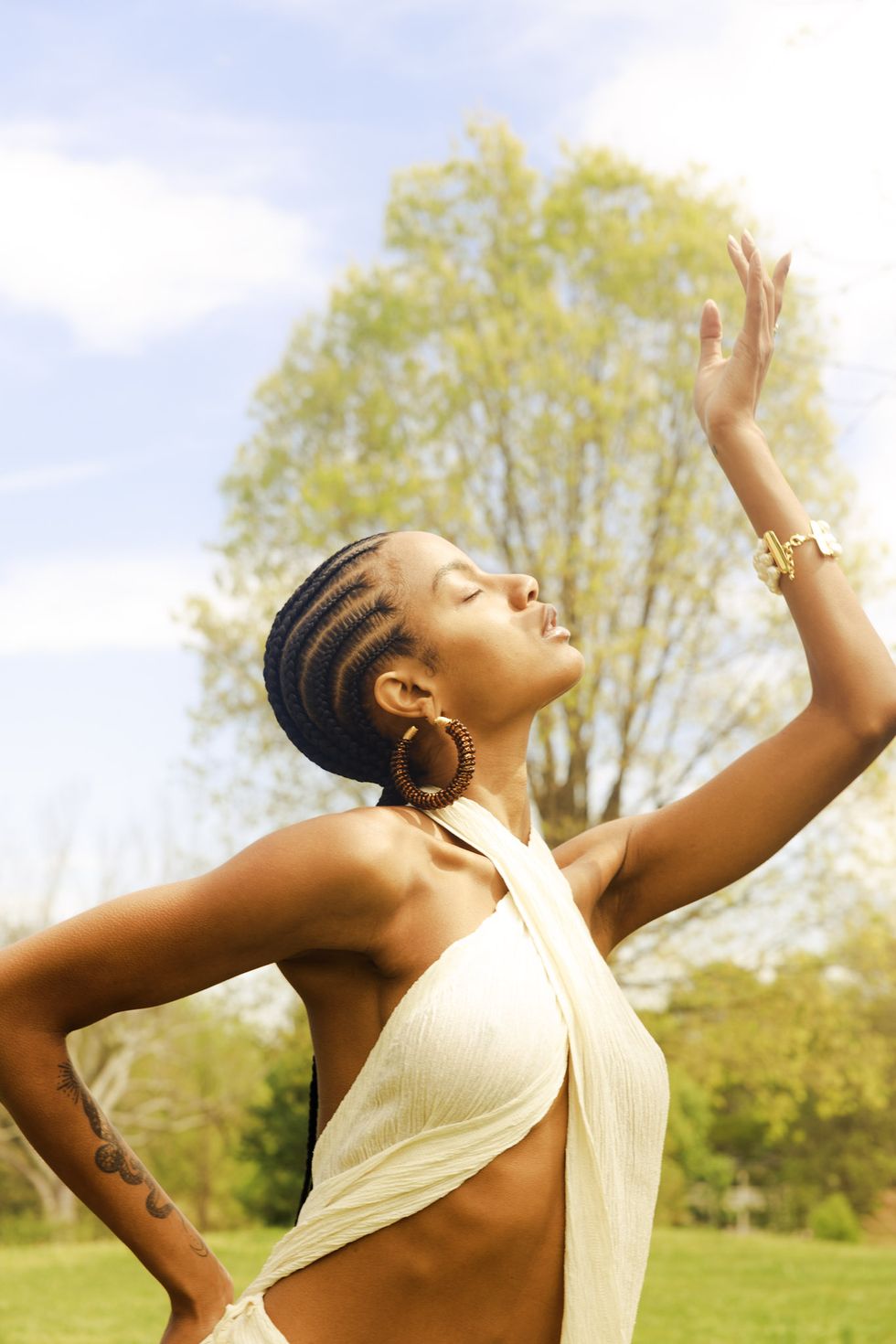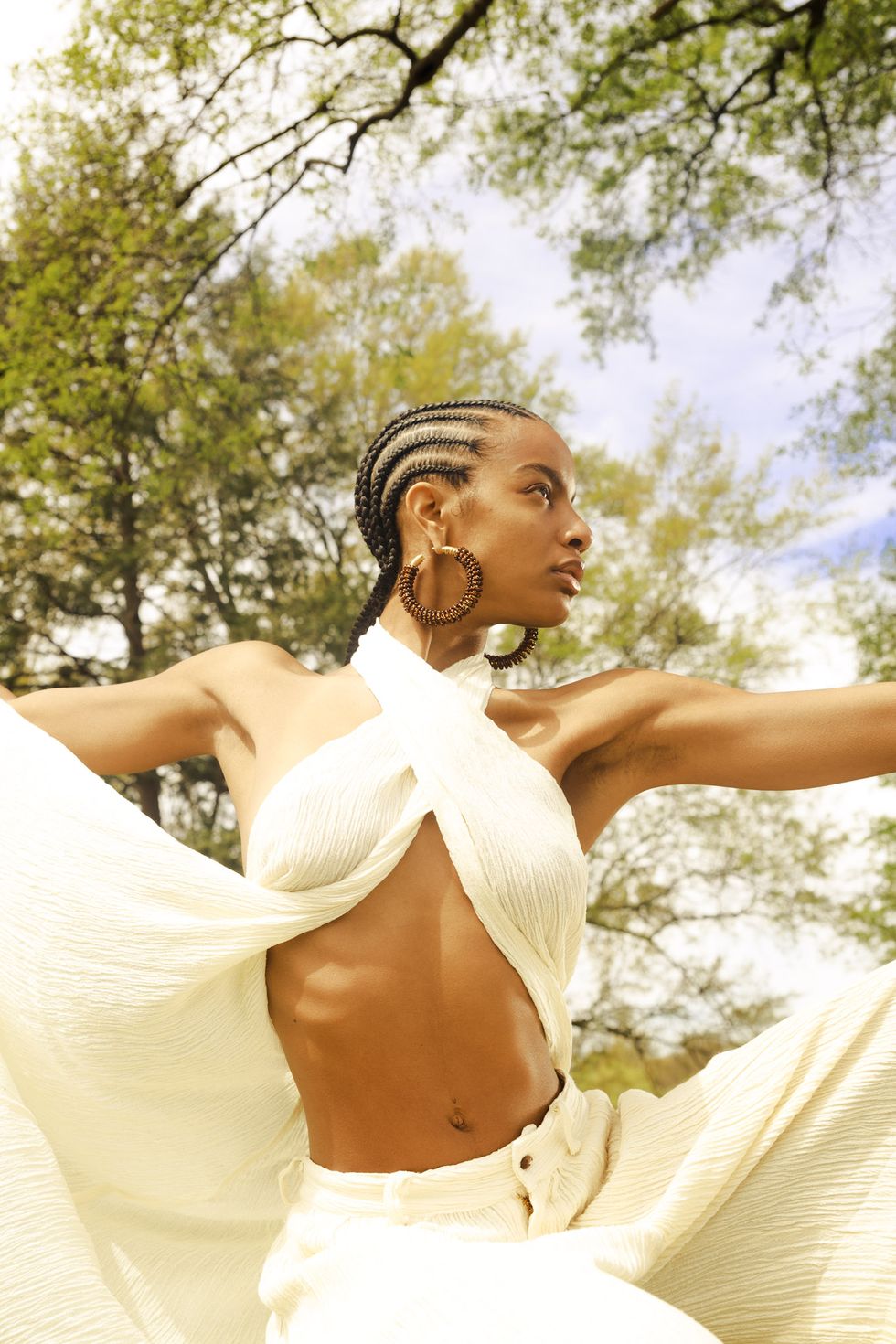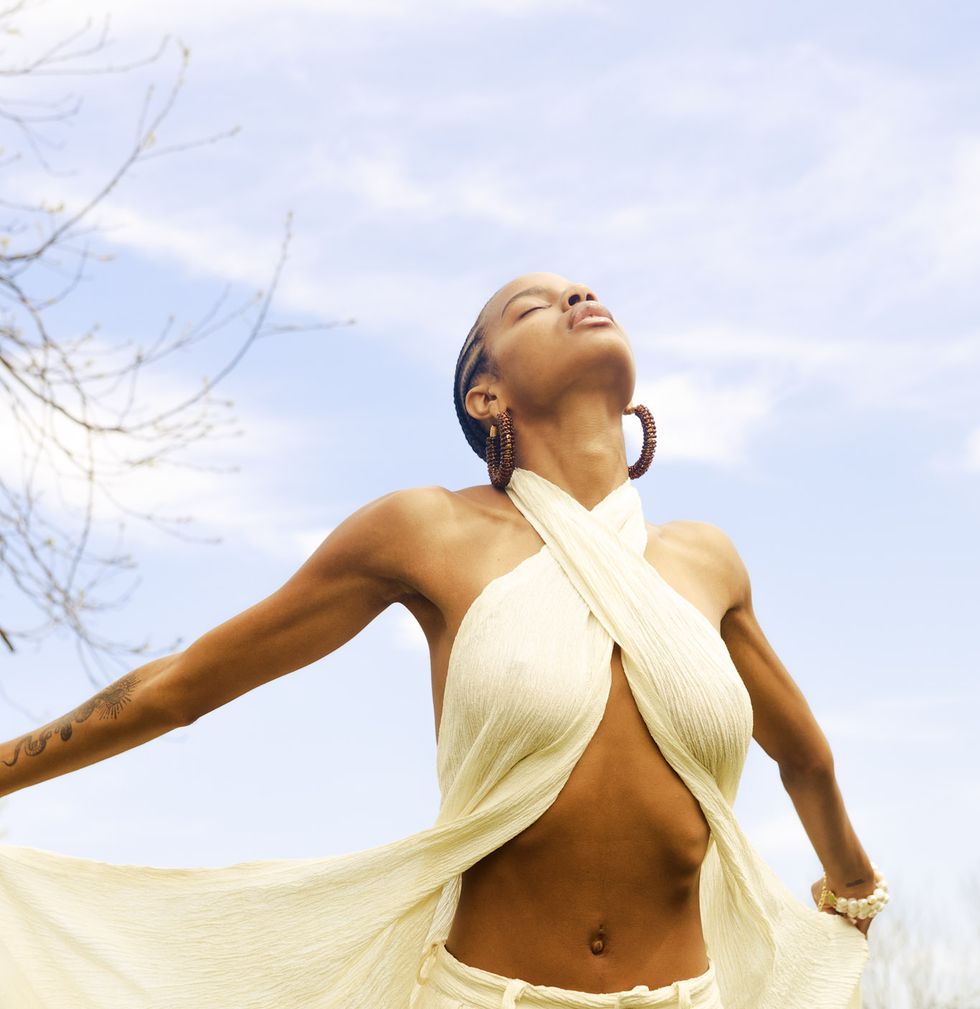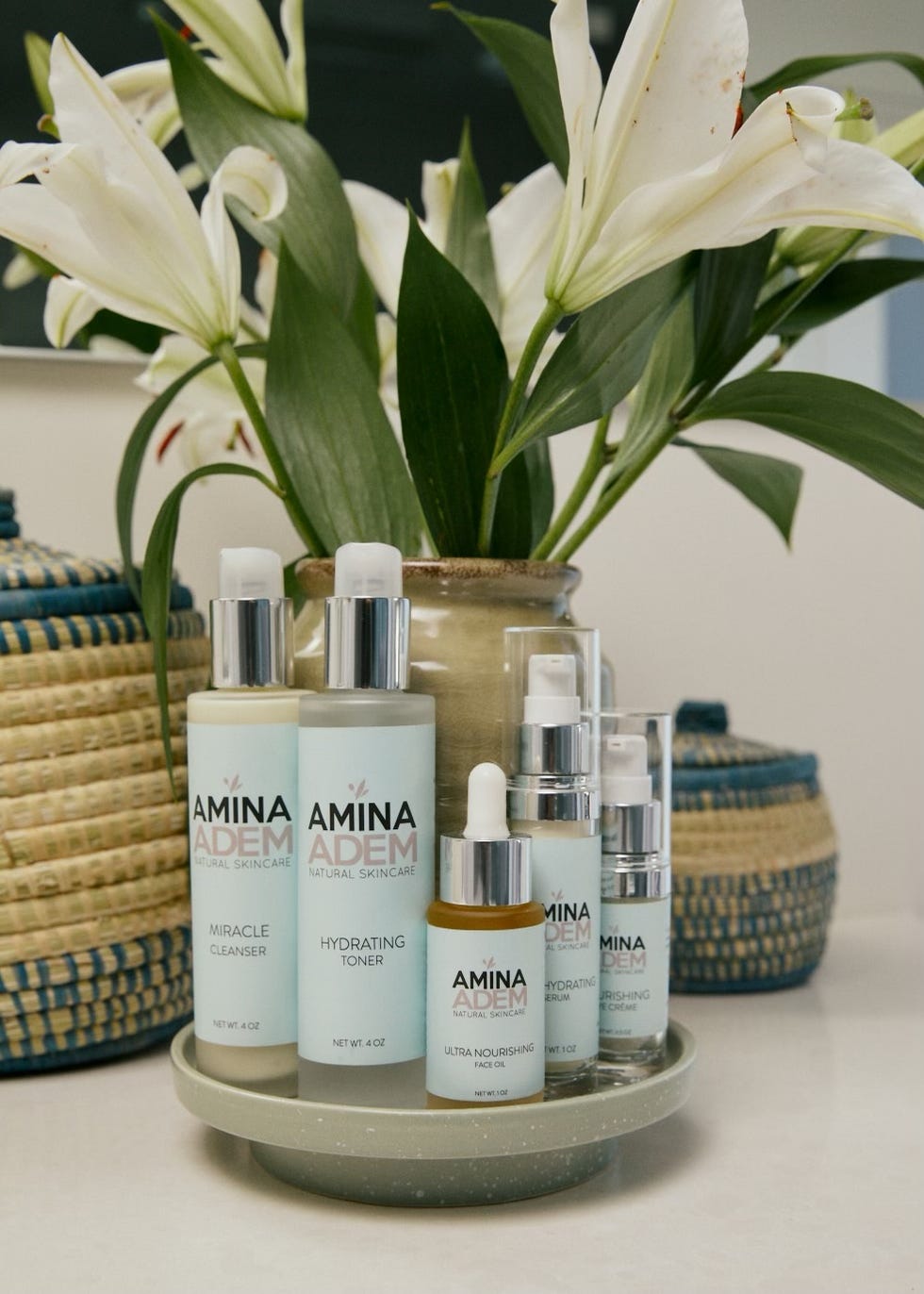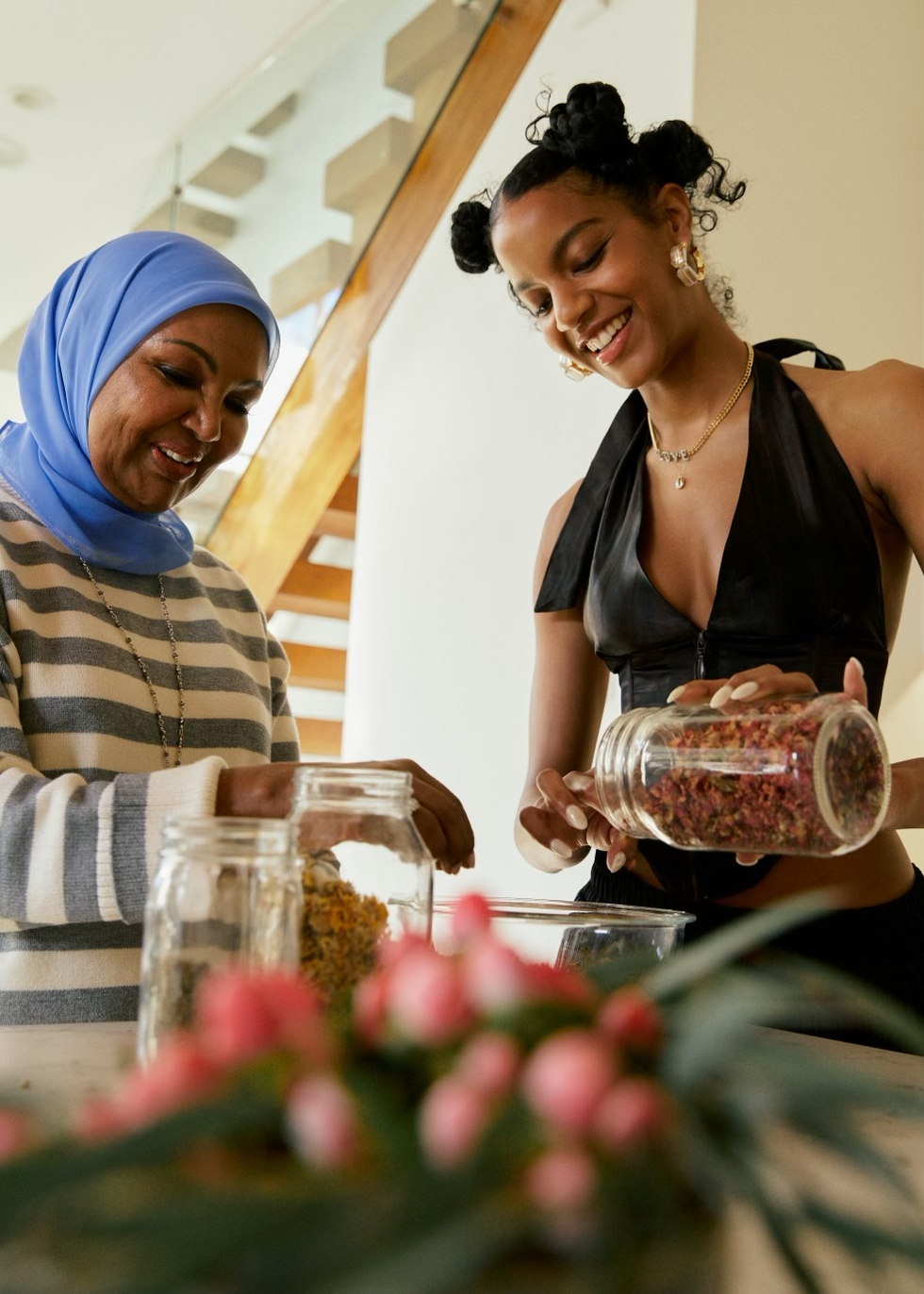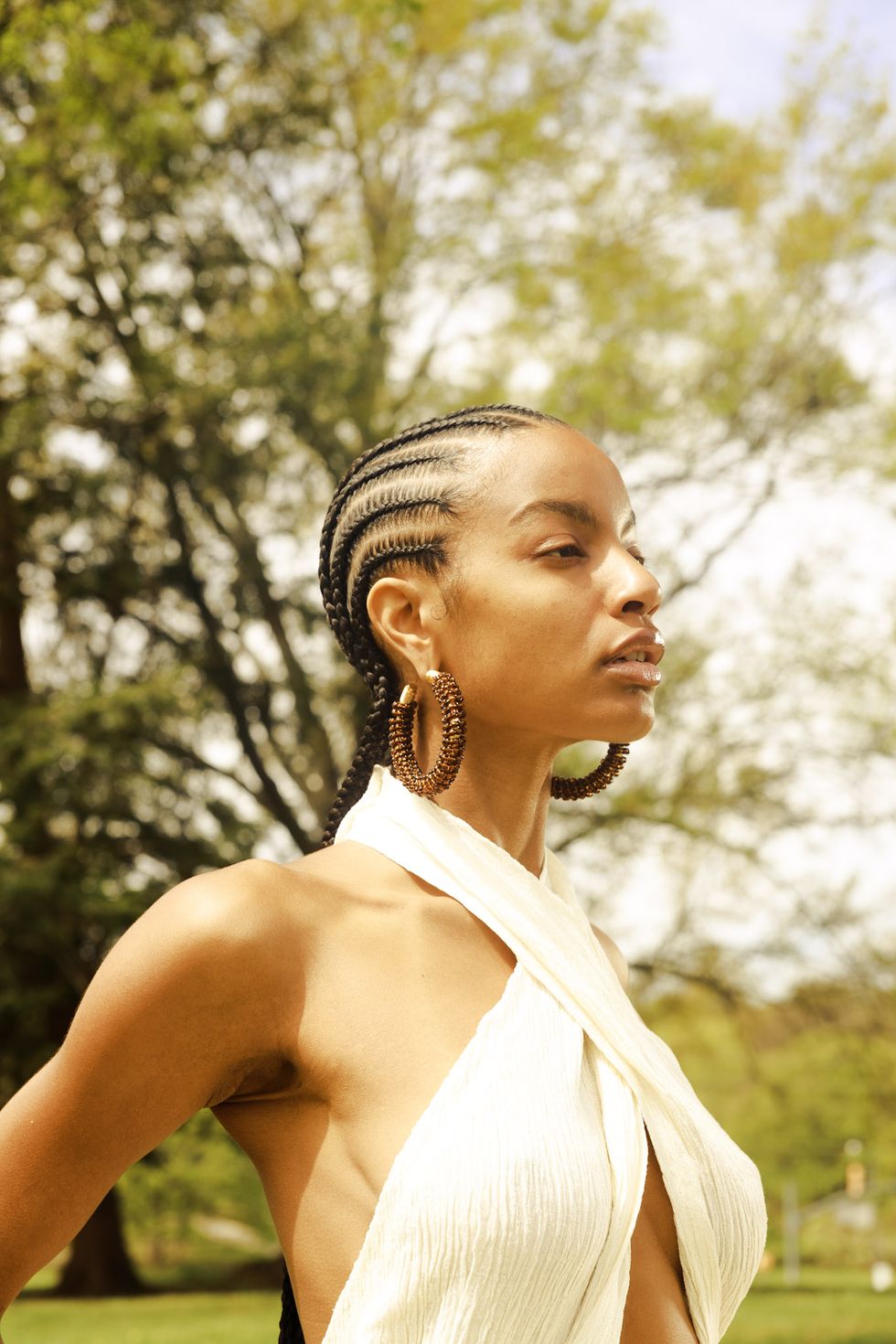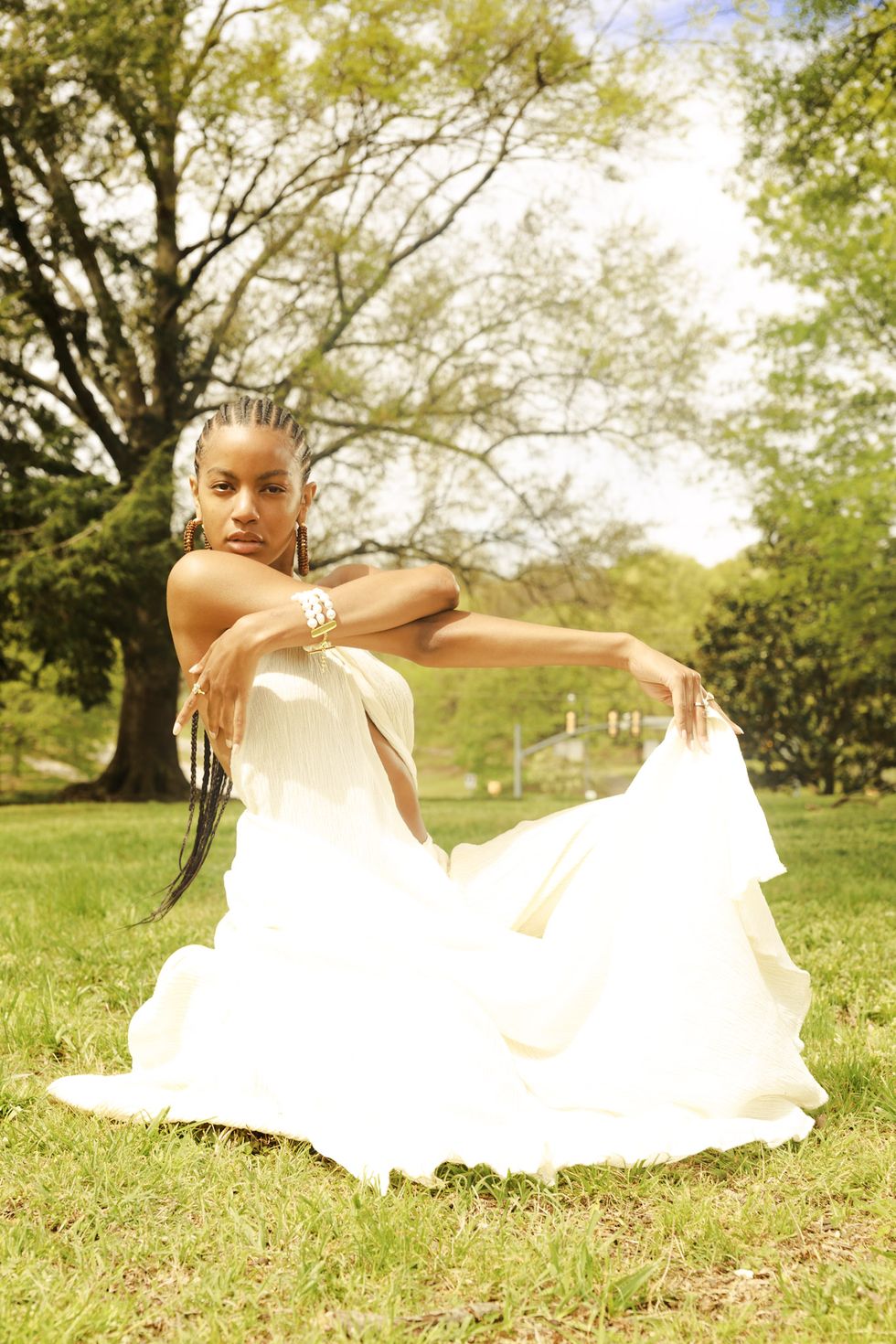Products You May Like
Like many of us, model, activist, and soon-to-be author Ebonee Davis has been going through it. So when we hop on the phone, the first thing I ask her is, “How are you doing?”
I can tell by her tone that her words are sincere. She has the energy of someone who has finally exhaled after a heavy period of upheaval—one she’s been working through for years.
The pandemic proved to be a time of ebbs and flows for the model. At the start of 2020, the time at home gave her a moment to take care of herself in ways she had yet to explore. “I got to really tap back into who I was as a kid, and explore my inner child through the lens of poetry, for example,” she shares. “I was juicing; I had all of this time on my hands, and no one was pulling out my energy.” But during the era of racial reckoning, Davis says she fell into a deep depression, which made her question her purpose.
Having long been known in the fashion industry as an advocate for diversity and equal representation, Davis had taken on the role of activist—something she felt she got a lot of backlash for, yet rarely reaped the rewards. Don’t get her wrong, though, she wasn’t looking for a round of applause for turning down a job or calling out racism; but she wanted to see the fruits of her labor. She wanted to know if everything she had fought for over the years had made a real impact.
“My identity as an individual was suddenly absorbed into the collective consciousness. If I’m making all these sacrifices and getting nothing out of it, then why am I here?” she questioned. “I had a sense of purpose that was driving me prior. I wanted to make a change; I wanted to break down the barriers that prevented me from ascending in the fashion industry, so the next generation could ascend without having to face the same obstacles.”
While this was a time of frustration and sadness for Davis, what was really at work was divine order. It was time for her to transcend past the grueling, and sometimes thankless, work of traditional activism. This new season called for transformation and healing. The type where it had to hurt, where it had to get ugly, where you had to reach the lowest of lows in order to move towards a new light—and the only way to get to the other side was to surrender.
“I was just being still and I was giving myself time to rest,” Davis says. “Saying no to certain things, putting up certain boundaries, and being aware of who I was sharing my energy with.”
During this period, the model reached another level of self-exploration. “It forced me to deep dive into my history, how I was raised, what ideas I was programmed with—not just from my family, but my community and society-at-large,” she shares. It gave her the space to shed the limiting beliefs holding her back from the next phase of her journey, like the idea that she had to force change. And while the spirit of activism wasn’t something that was going to depart from her soul, the time had come to find a new way to be of service to her community: by focusing on wellness.
Historically, the concept of rest as a necessity, rather than a reward, has not been normalized in the Black community. Having the privilege to focus on our own well-being, mental health, and emotional state is a new concept, seeing as we’ve collectively been existing in survival mode for centuries. But during her time of transition, Davis learned that rest is resistance. Self-care, softness, slowness, stillness—they’re all revolutionary for us.
“It’s just so essential that we give ourselves the healing our ancestors never had the opportunity to experience,” the 30-year-old says. “I think that’s what’s going to take us to the next level of liberation.” And she was ready to lean in.
Fast forward to 2023, and Davis’ fresh approach to life has manifested into numerous new creative projects that not only serve others, but also her own personal mission.
The multi-hyphenate launched the Ebb and Flow podcast this past March. Created and produced by five young women of color, the project aims to help listeners take a break from the day-to-day grind, and get back into natural alignment using their own gifts.
“We’re all part of the same ecosystem, and we have to stop looking at humanity as something that’s separate,” the podcast host says. “The way we force ourselves into these unnatural rhythms and these unnatural patterns of behavior [as a result of capitalism] just doesn’t make sense. If we get in alignment with nature’s tempos, I think we’ll find a lot more ease in our lives.”
Davis has also just signed on as creative director for Amina Adem Natural Skincare, a line of products created by beauty therapist and certified aromatherapist Amina Adem, inspired by the medicinal plants of Eritrea. The model first started using the collection back in 2019 to treat hyperpigmentation and uneven skin tone—she’s since sworn by them (you can use code “Davis10” at check out if you want to try them for yourself). Now, she’s teaming up with the brand not only in business, but in service.
Both Adem and Davis will be using their platforms and products to make donations to numerous causes that support young women through their respective nonprofits: Adem’s Kind Heart—which has benefited Covenant House California and Araha, to name a few—as well as Daughter, an organization founded by Davis to sponsor travel for people of the African diaspora.
This October, Davis will be publishing a book by the same name. Daughter: The Soul Journey of a Black Woman in America Having a Human Experience goes deep into the soon-to-be author’s metamorphosis, exploring her journey of healing, growth, and self-actualization—which required the model to let go of shame, and explore a new level of vulnerability.
“I’m gonna be here for maybe 100 years, maybe 102—if I’m lucky,” she laughs. “But my story is gonna live forever, and it has to inspire and unlock freedom for generations, beyond what I can even imagine. So am I gonna gate-keep my truth, because I’m embarrassed? No, I’m gonna just let it fly.”
It’s been a few days since Davis and I spoke. I first started writing about our conversation soon after we got off the phone, but as the week progressed I noticed I wasn’t feeling well. The words weren’t flowing. Mentally, I was drained from a heavy workload, my physical body was tired, and emotionally something felt off. Intuitively, I knew I needed a few days to recuperate to feel like myself again—yet the traditional North American work structure would tell you otherwise.
Still, I chose to listen to my body and take the Friday off to rest—and it’s a good thing I did.
Later that morning, I got a text from Davis. She had been thinking of our talk, specifically the moment where we discussed our elders, and how we can encourage them to view rest as a necessity, not something that needs to be earned. Her advice was simply to work on ourselves first. That’s when I realized her words not only applied to older generations, but anyone who’s on this journey—myself included.
“Through our own healing, we have the power to undo generations of programming—we are them and they are us,” Davis writes. “We don’t need to force our healing onto those around us. We can simply embody our own truth and stand in our own light. That is enough to illuminate the paths of those around us who are ready to change at their own pace.”
And she’s right—this story is a testament to just that.
